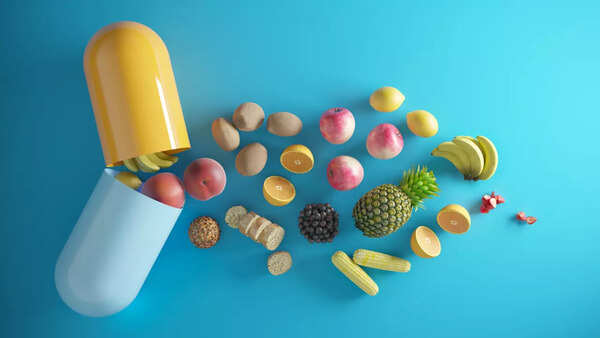Vitamins and minerals are important for maintaining health. From the protection of vision to immunity, they not only promote overall health, but also protect against various diseases.

VIttamine is called “necessary” because they are not synthesized in the body (except vitamin D), so they should come from food or supplements. The deficiency can lead to diseases, in some cases even severe. The inclusion of natural nutrition sources in the diet ensures that your body receives these nutrients. From vitamins from A to K, here is a list of vitamins, their functions and where to find them naturally.
Vitamin A

Vitamin A supports vision, skin health and immune function. In food, it exists as retinol (animal sources) and beta-carotene (plant sources). The deficiency can lead to night blindness and weakened immunity, which can invite the deadly illness. Foods rich in Vitamin A: sweet potatoes, carrots, pumpkin, spinach, cabbage, melon, mango, liver, salmon, shrimp and eggs.
Vitamin B complex

B vitamins such as thiamine (B1), Riboflavin (B2), Niacin (B3), Pantothenic Acid (B5), Pyridoxine (B6), Biotin (B7), Folotar (B9) and Cobalomin (B12), together with the vitamin B complex, they maintain energy. Deficiency can cause fatigue, anemia or neurological problems.Foods rich in Vitamin B: whole grains such as brown rice and oats, avocado, bananas, spinach, salmon, beef, eggs, strengthened cereals and yeast.
Vitamin C

Vitamin C is a powerful antioxidant that supports collagen formation, wound healing and immune health. It also enhances the absorption of iron from vegetable foods. Vitamin C products: citrus fruits such as oranges and grapefruits are excellent sources. Cherished peppers, strawberries, broccoli and kiwi are also good sources.
Vitamin D

The body can produce “sunny vitamin” from sun exposure. Vitamin D helps in the absorption of calcium for strong bones and maintains immune and muscle function. Low level is associated with rickets and osteoporosis.Foods rich in vitamin D: fatty fish such as salmon, sardines, herring and mackerel, red meat, liver (not suitable for pregnant women), egg yolks and fortified foods such as some fat spreads and cereals for breakfast.
Vitamin E

Vitamin E protects cells from oxidative damage and maintains skin and heart health. It is a fat -soluble vitamin, which means that it is best absorbed by food fat.Vitamin E products: nuts and seeds (sunflower almonds) are excellent sources. Spinach, avocado and olive oil are also rich in vitamin E.
Vitamin to

Vitamin K is important for blood clotting and bone health. It comes in two forms: K1 (philachinon) of plants and K2 (menakhinon) from animals and sour foods. Vitamin K deficiency can lead to excessive bleeding.Foods rich in Vitamin K: leaf greens (cabbage, collars and Swiss), dairy food (Natto and cheese).
The best way to get vitamins and minerals is dietary sources. However, in case of deficit, supplements can help. But it is important to talk to your doctor before taking supplements.











